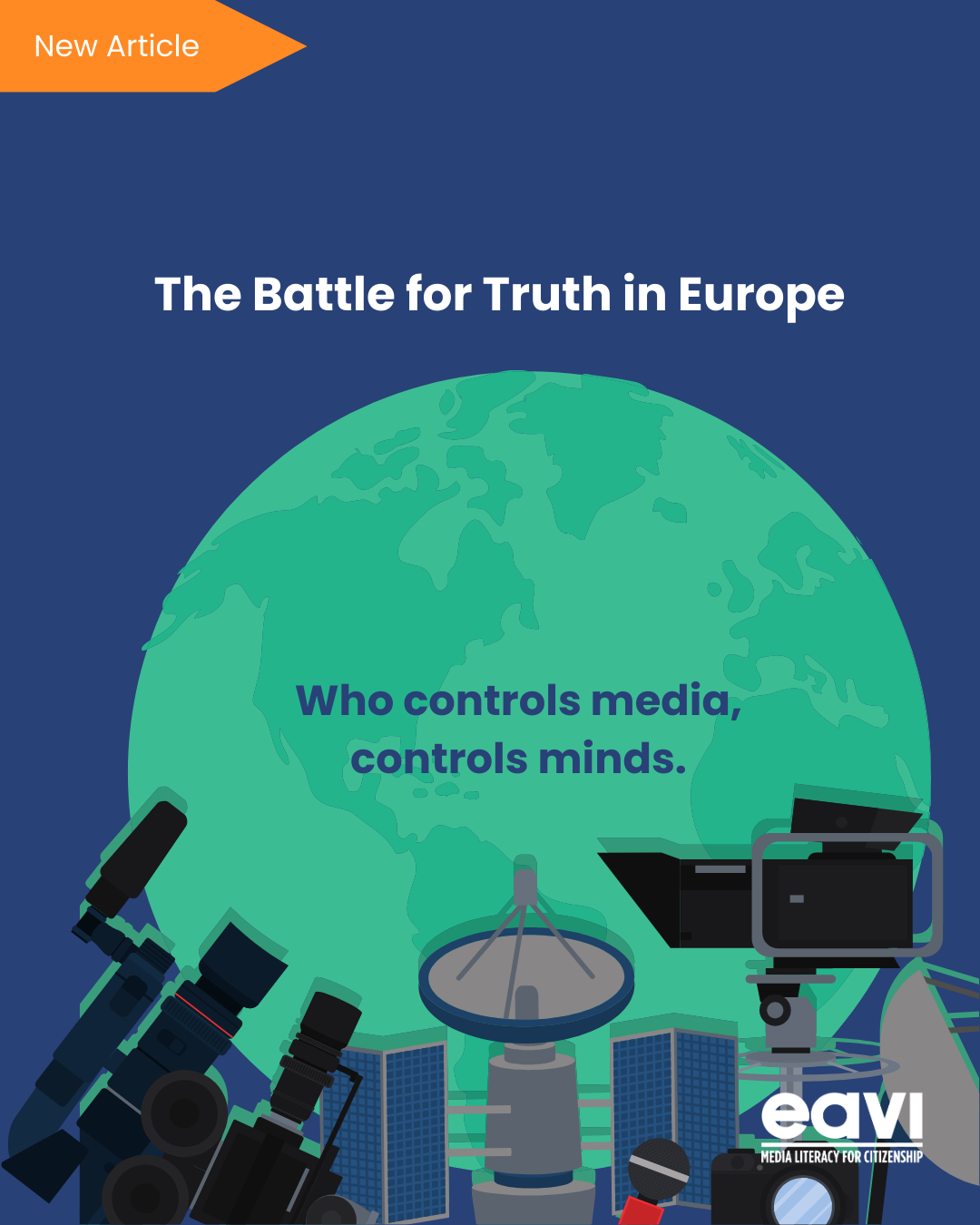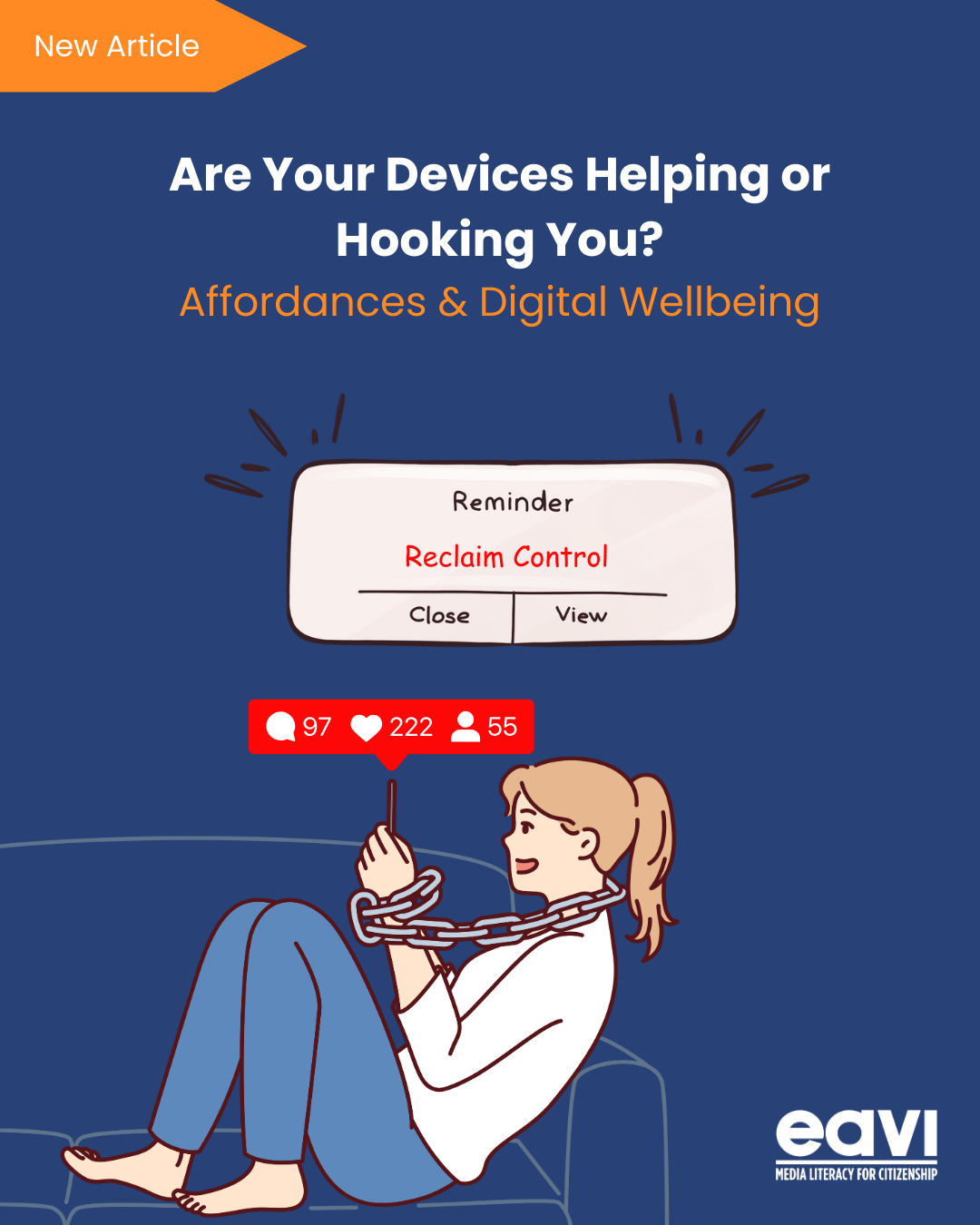 European Policies for Communication and Digital Skills
European Policies for Communication and Digital Skills
On October 17th La Sapienza University in Rome organised a school on innovative communication strategies. In a two-hour lecture, EAVI Secretary General Paolo Celot illustrated the European policies for communication and digital skills.
According to the European Commission Facts’ Sheets, Europeans are in need of acquiring digital skills: 41 % of individuals aged 16-74 lack the most basic digital skills, 40 % of employers are struggling with recruiting employees who have the right skills and nearly all jobs require some level of digital competence.
In June the EC published A New Skills Agenda for Europe, foreseeing ten actions to help equip people in Europe with better skills. The Actions are supposed to foster the development of new skills, assess those already possessed and render them more visible and comparable across different countries.
For instance, the new Europass and the European Qualification Framework or the e-CF aim to achieve the latter, providing individuals and companies with tools for immediate use.
Other measures geared towards broader objectives are about to be implemented such as the Skill Guarantee or the pompous Great Coalition for Digital Skills which encourages member states (also financially) to take policy actions with reference to digital skills.
During his lecture, Paolo argued that while the activity of the Commission in this field is highly appreciated, already in 2008 and 2010 similar policy initiatives (New skills for new jobs) had delivered doubtful tangible results.
It is necessary indeed for the EU to include digital skills in the category of basic skills each European should possess (together with literacy and numeracy), as the arguments brought forward by experts to promote media literacy are widely in support of such a policy. Essentially the digital skills required list technical, cognitive, communicative abilities as emphasized by EAVI’s study on Assessment Criteria for Media Literacy Levels in Europe.
However the inclusion of digital skills within the range of basic competences occurs in relation to the Commission’s current interpretation of the concept, which focuses on markets, jobs, technical and specialized aspects. A more ample social and cultural approach would have been auspicated in order to reach concrete results.
Even those competences the EU defines as ‘Transversal skills’ (such as entrepreneurship, team work, problem solving and financial literacy) show an utilitaristic approach, supposedly offering people immediate advantages.
Paolo feels instead that whichever specific skills one needs to acquire (including to be better off to find a job) have to be based on solid knowledge and on competences that have not changed in thousands of years: learning, patience, resilience, vision, communication, intuition, decision, collaboration, to name but a few. Successful people, both in business and politics, possess these skills.
It follows that true leaders ought to ground those competences in solid values, wisdom, ethics and compassion.
[/fusion_builder_column][/fusion_builder_row][/fusion_builder_container] European Policies for Communication and Digital Skills
European Policies for Communication and Digital Skills
On October 17th La Sapienza University in Rome organised a school on innovative communication strategies. In a two-hour lecture, EAVI Secretary General Paolo Celot illustrated the European policies for communication and digital skills.
According to the European Commission Facts’ Sheets, Europeans are in need of acquiring digital skills: 41 % of individuals aged 16-74 lack the most basic digital skills, 40 % of employers are struggling with recruiting employees who have the right skills and nearly all jobs require some level of digital competence.
In June the EC published A New Skills Agenda for Europe, foreseeing ten actions to help equip people in Europe with better skills. The Actions are supposed to foster the development of new skills, assess those already possessed and render them more visible and comparable across different countries.
For instance, the new Europass and the European Qualification Framework or the e-CF aim to achieve the latter, providing individuals and companies with tools for immediate use.
Other measures geared towards broader objectives are about to be implemented such as the Skill Guarantee or the pompous Great Coalition for Digital Skills which encourages member states (also financially) to take policy actions with reference to digital skills.
During his lecture, Paolo argued that while the activity of the Commission in this field is highly appreciated, already in 2008 and 2010 similar policy initiatives (New skills for new jobs) had delivered doubtful tangible results.
It is necessary indeed for the EU to include digital skills in the category of basic skills each European should possess (together with literacy and numeracy), as the arguments brought forward by experts to promote media literacy are widely in support of such a policy. Essentially the digital skills required list technical, cognitive, communicative abilities as emphasized by EAVI’s study on Assessment Criteria for Media Literacy Levels in Europe.
However the inclusion of digital skills within the range of basic competences occurs in relation to the Commission’s current interpretation of the concept, which focuses on markets, jobs, technical and specialized aspects. A more ample social and cultural approach would have been auspicated in order to reach concrete results.
Even those competences the EU defines as ‘Transversal skills’ (such as entrepreneurship, team work, problem solving and financial literacy) show an utilitaristic approach, supposedly offering people immediate advantages.
Paolo feels instead that whichever specific skills one needs to acquire (including to be better off to find a job) have to be based on solid knowledge and on competences that have not changed in thousands of years: learning, patience, resilience, vision, communication, intuition, decision, collaboration, to name but a few. Successful people, both in business and politics, possess these skills.
It follows that true leaders ought to ground those competences in solid values, wisdom, ethics and compassion.
[/fusion_builder_column][/fusion_builder_row][/fusion_builder_container] European Policies for Communication and Digital Skills
European Policies for Communication and Digital Skills
On October 17th La Sapienza University in Rome organised a school on innovative communication strategies. In a two-hour lecture, EAVI Secretary General Paolo Celot illustrated the European policies for communication and digital skills.
According to the European Commission Facts’ Sheets, Europeans are in need of acquiring digital skills: 41 % of individuals aged 16-74 lack the most basic digital skills, 40 % of employers are struggling with recruiting employees who have the right skills and nearly all jobs require some level of digital competence.
In June the EC published A New Skills Agenda for Europe, foreseeing ten actions to help equip people in Europe with better skills. The Actions are supposed to foster the development of new skills, assess those already possessed and render them more visible and comparable across different countries.
For instance, the new Europass and the European Qualification Framework or the e-CF aim to achieve the latter, providing individuals and companies with tools for immediate use.
Other measures geared towards broader objectives are about to be implemented such as the Skill Guarantee or the pompous Great Coalition for Digital Skills which encourages member states (also financially) to take policy actions with reference to digital skills.
During his lecture, Paolo argued that while the activity of the Commission in this field is highly appreciated, already in 2008 and 2010 similar policy initiatives (New skills for new jobs) had delivered doubtful tangible results.
It is necessary indeed for the EU to include digital skills in the category of basic skills each European should possess (together with literacy and numeracy), as the arguments brought forward by experts to promote media literacy are widely in support of such a policy. Essentially the digital skills required list technical, cognitive, communicative abilities as emphasized by EAVI’s study on Assessment Criteria for Media Literacy Levels in Europe.
However the inclusion of digital skills within the range of basic competences occurs in relation to the Commission’s current interpretation of the concept, which focuses on markets, jobs, technical and specialized aspects. A more ample social and cultural approach would have been auspicated in order to reach concrete results.
Even those competences the EU defines as ‘Transversal skills’ (such as entrepreneurship, team work, problem solving and financial literacy) show an utilitaristic approach, supposedly offering people immediate advantages.
Paolo feels instead that whichever specific skills one needs to acquire (including to be better off to find a job) have to be based on solid knowledge and on competences that have not changed in thousands of years: learning, patience, resilience, vision, communication, intuition, decision, collaboration, to name but a few. Successful people, both in business and politics, possess these skills.
It follows that true leaders ought to ground those competences in solid values, wisdom, ethics and compassion.
[/fusion_builder_column][/fusion_builder_row][/fusion_builder_container]







































































































































































